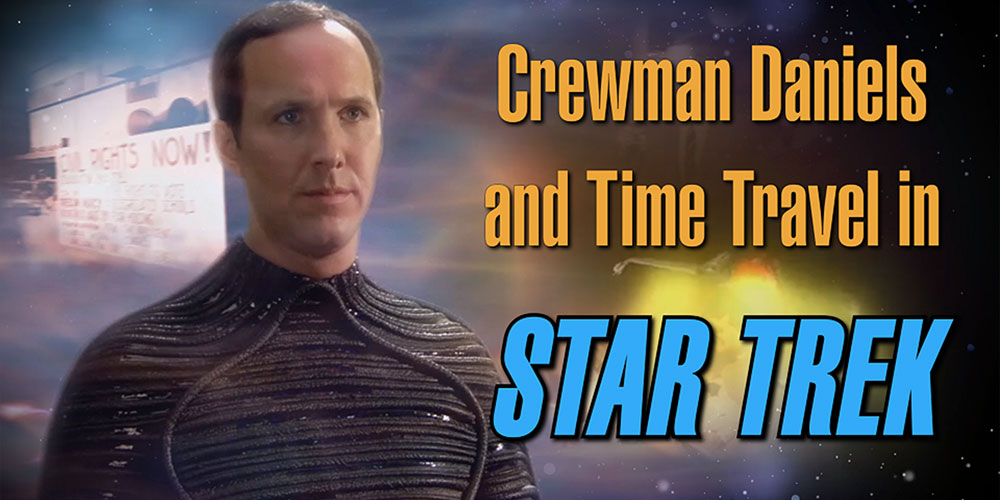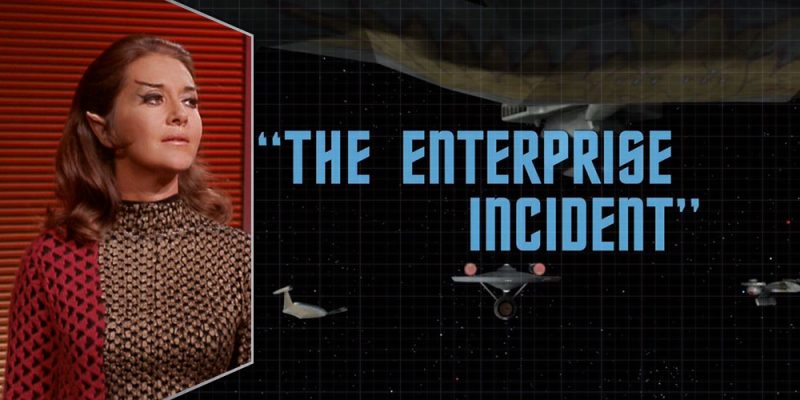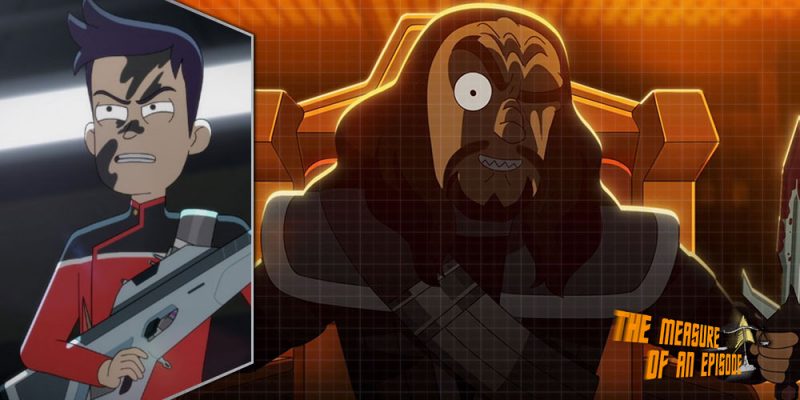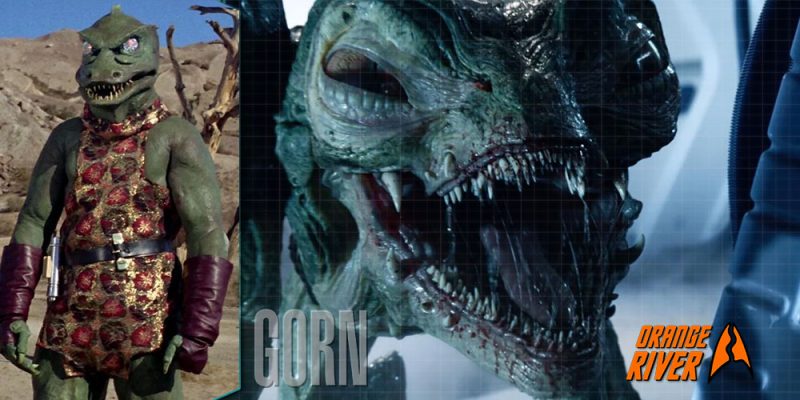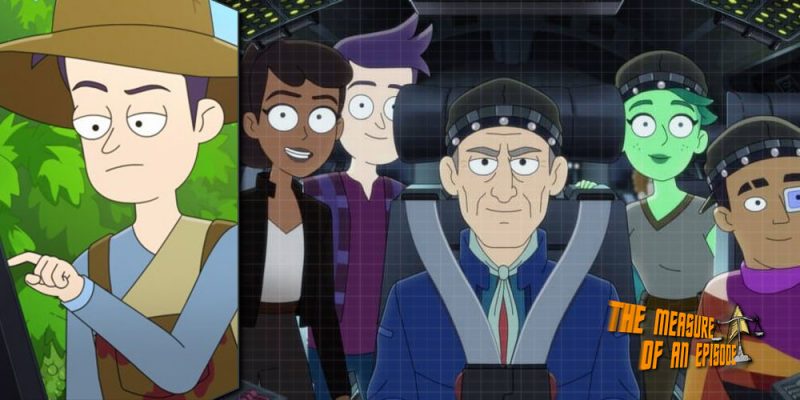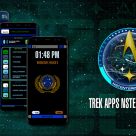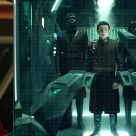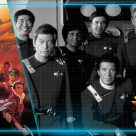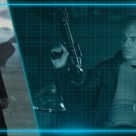Hey guys, what’s up? Tyler here. Throughout the Star Trek franchise, we see countless instances of time travel. Not only do these escapades have a significant impact on the canon of the universe, but the different methods used reflect varying interpretations of the plot device. This has become such a prevalent phenomenon that coming up with a unified theory of time travel in Star Trek is quite difficult, if not impossible. Case in point: the reboot film series indicates that Nero’s temporal incursion establishes a parallel universe that doesn’t overwrite the “prime” reality; prior to this, most Star Trek time travel episodes and films involved time loops and predestination paradoxes.
While reconciling these differences has been a point of contention among fans, another story arc in Trek complicates things even further: the Temporal Cold War. I’ve made a video before explaining the Temporal Cold War—or at least attempting to. In short, the Temporal Cold War as documented in Star Trek: Enterprise is a centuries-spanning conflict made up of factions competing to control their preferred version of the timeline. The various factions are mostly kept in check by the Temporal Accord, although notable violations of the Accord happen, such as the Na’kuhl in “Storm Front.”
Much of our information about the Temporal Cold War is provided by Daniels, a temporal agent from the 31st century who at least appears to be aligned with the Federation. Daniels, posing as a Crewman on the NX-01 in the 22nd century, reveals to Jonathan Archer that he is from a distant future where events recorded in history diverge from what we see on screen. That is to say, the Xindi crisis—sparked by an attack on Earth’s civilian population—was “never supposed to occur.” Daniels’ apparent motive is to coax Archer into participating in certain events that will lead to the forming of the Federation, a destiny at odds with the Captain’s mission to defeat the Xindi.
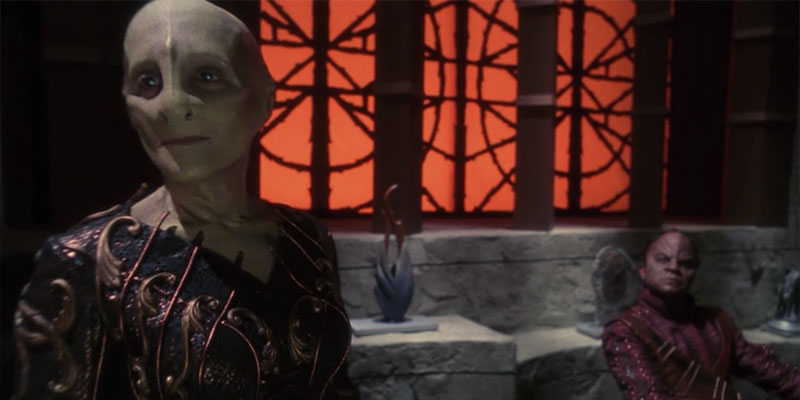
The Xindi are propelled to attack Earth by the Sphere Builders, a race of transdimensional beings whom the Federation defeats in a possible future. By constructing a network of spheres in a region of space called the Delphic Expanse, the Sphere Builders plan to alter normal space to suit their biology as a prelude to an invasion. The Sphere Builders pose as gods to the Xindi, whose homeworld was recently destroyed, convincing the Xindi that humans are their enemy. As we see in season three of Enterprise—spoiler warning—the NX-01 thwarts the deployment of a Xindi superweapon to destroy Earth and in the process disables the Delphic Expanse network.
The incident that drives the construction of the Delphic Expanse network is the Battle of Procyon V, a conflict in the mid-26th century wherein the Sphere Builders are driven out of normal space by a Federation coalition. Daniels shows Archer this possible future to convince him to make peace with the Xindi, who have joined the Federation by this future date. Archer is largely unconvinced by this future’s veracity and decides to go through with his suicide mission as seen in “Azati Prime.” As we leave the scene of the battle, we as the viewers remain uncertain—just as Archer does—as to whether all this is even real or is cooked up by Daniels as part of subterfuge to lead Archer in a particular direction.
This isn’t the first instance where Daniels shows Archer a version of the future that may or may not be “real;” in “Shockwave,” we are transported to a 31st century Earth that is decimated beyond recognition. Although the timeline is reset by the end of the episode, its depiction contradicts the “ripple effect” Daniels mentions; this “ripple effect” allows observers in a future timeframe to take correcting steps before changes reach their century. This points to the major possibility that much of what Daniels tells Archer about the nature of time travel is unreliable.
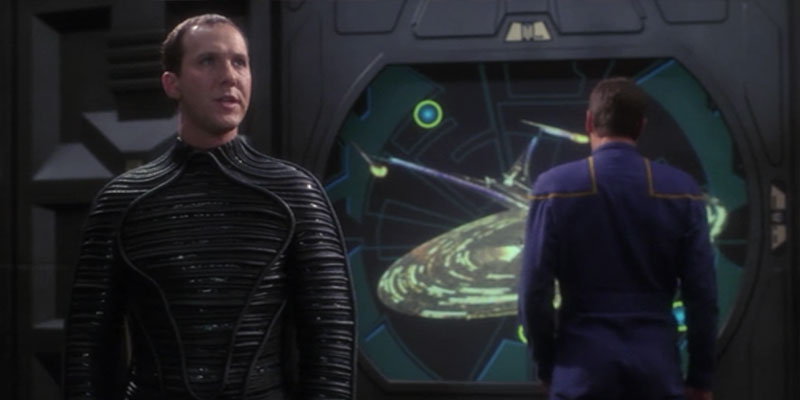
This presents us with two distinct scenarios: one where Daniels’ future is an alternate recording of history that truly does not incorporate the Xindi incident or a version where he is lying about the future, meaning he could exist as an agent of the “prime” universe. The temporal agency to which Daniels is loyal is never explicitly revealed, although we know it isn’t Starfleet—a departure from the 29th-century temporal agents we see in Voyager. This 31st-century temporal agency is interested in guiding the timeline towards a form recognizable as the canon instalments of the Star Trek franchise, including Archer’s role in the Romulan War and founding of the Federation.
If Daniels is truly from the “prime” universe and is lying about the Xindi incident being an aberration, then there’s no reason to think much anything else is different—Earth-Klingon first contact is supposed to happen in 2151, the victims of the Xindi War are meant to die, etc. But if Daniels’ future really is different—i.e., his history doesn’t record either of these events as seen in Enterprise—then that presents other interesting possibilities. Was Romulus meant to be destroyed? Was Benjamin Sisko truly the Emissary of the Prophets? Was the Bajoran occupation destined to happen? Furthermore, was the Enterprise-D supposed to make contact with the Borg in 2365? Was Voyager meant to be stranded in the Delta Quadrant?
The answer to the last couple of questions could be “no” depending on if the Q are to be trusted. But all this points to a much larger issue—there could be an infinite number of alternate timelines of the Star Trek universe that preceded the “main” timeline, where events that were “supposed” to occur don’t and vice versa. The Borg interference in Zefram Cochrane’s warp flight, the assignment of James T. Kirk to the Enterprise, the outcome of the Klingon Civil War—anything and everything could be an aberration, straying away from some supposed “true” history that we’ve never seen on screen. Taken to its logical extreme, humanity itself may have never been meant to exist.
This slippery slope is why time travel, while convoluted, is integral to many aspects of Star Trek’s history. The “prime” universe timeline is riddled with predestination paradoxes like the Bell Riots, the Whale Probe incident, and more that are woven into the fabric of the Trek canon. The absence of a great number of these events would render the Trek universe unrecognizable, perhaps meaning even the Federation doesn’t exist—something that, clearly, Daniels’ faction in the Temporal Cold War has a vested interest in influencing.
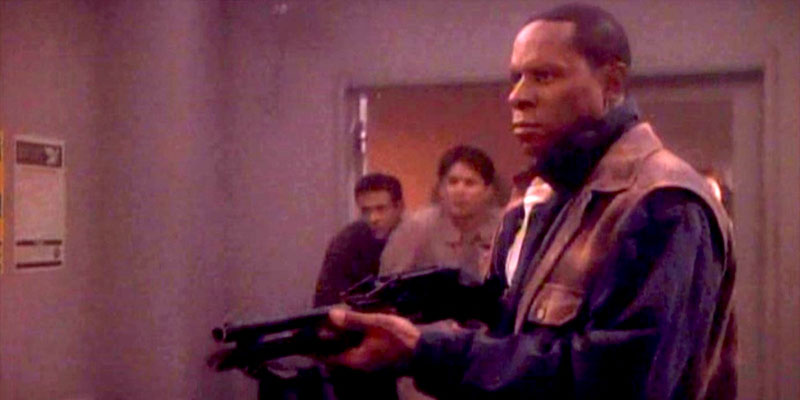
To this end, it almost doesn’t matter whether Daniels is from the prime universe or not. The fact is, the events he tried to make sure happen are supposed to lead to everything else we see in the franchise. If he’s preserving the timeline he knows, then he has succeeded, and the rest of the canon bears that out. If he has failed, then his future is avoided, which still has no negative impact on the other series in the franchise. The Battle of Procyon V may or may not still happen in the “prime universe,” but since the events, it triggered—such as the creation of the Delphic Expanse and the Xindi crisis—aren’t part of the Sphere Builders’ original history, it also might not matter if the battle still occurs or is part of a lost timeline that the NX-01 helps avert.
As for a unified theory of time travel in Star Trek, well, there still isn’t one…but dedicated fans on forums such as the Daystrom Institute subreddit have posited that the events of the 2009 film are a special case due to the nature of the red matter singularity and most other events involve a singular, mutable timeline. This seems to be the most straightforward interpretation, albeit one that still leaves some scratching their heads when it comes to the minute details.
So, what is the point of this investigation? Well, the point is that based on what we see in Star Trek: Enterprise, events such as the Xindi incident don’t necessarily constitute an alternate timeline. They are part of the canon of the entire franchise—one singular timeline, save for the Kelvin movies—as indicated in the Enterprise series finale, “These Are the Voyages…” Under this interpretation, the Federation owes its existence to the Borg, at least in part, and everything else we see is “correct” enough that the opinions of temporal agents from the future shouldn’t deter characters from making their own choices. In other words, while there might be an “original” Star Trek timeline that’s different from the “prime” continuity, the canon we see on screen is just as legitimate as any number of parallel universes.
My hope is that this video has cleared up some confusion around the Temporal Cold War and Enterprise as well as their relation to the Kelvin movies. Of course, I’ve probably raised more questions in the process, but for me, that’s an acceptable consequence that only sparks more discussion.
Thank you all for watching! I definitely want to hear your thoughts in the comments. If you enjoyed content like this, becoming a patron at patreon.com/orangeriver is a great way to support me.
Watch The Latest Video By Orange River Media Below
Don’t forget to subscribe, and I’ll see you next time! Live long and prosper…
You can find Orange River Media at the links below
- YouTube: https://www.youtube.com/orangeriver
- Twitter: https://www.twitter.com/orangerivernw
- Instagram: https://www.instagram.com/orangeriver.nw
- Facebook: https://www.facebook.com/orangerivernw
- Patreon: https://www.patreon.com/orangeriver

